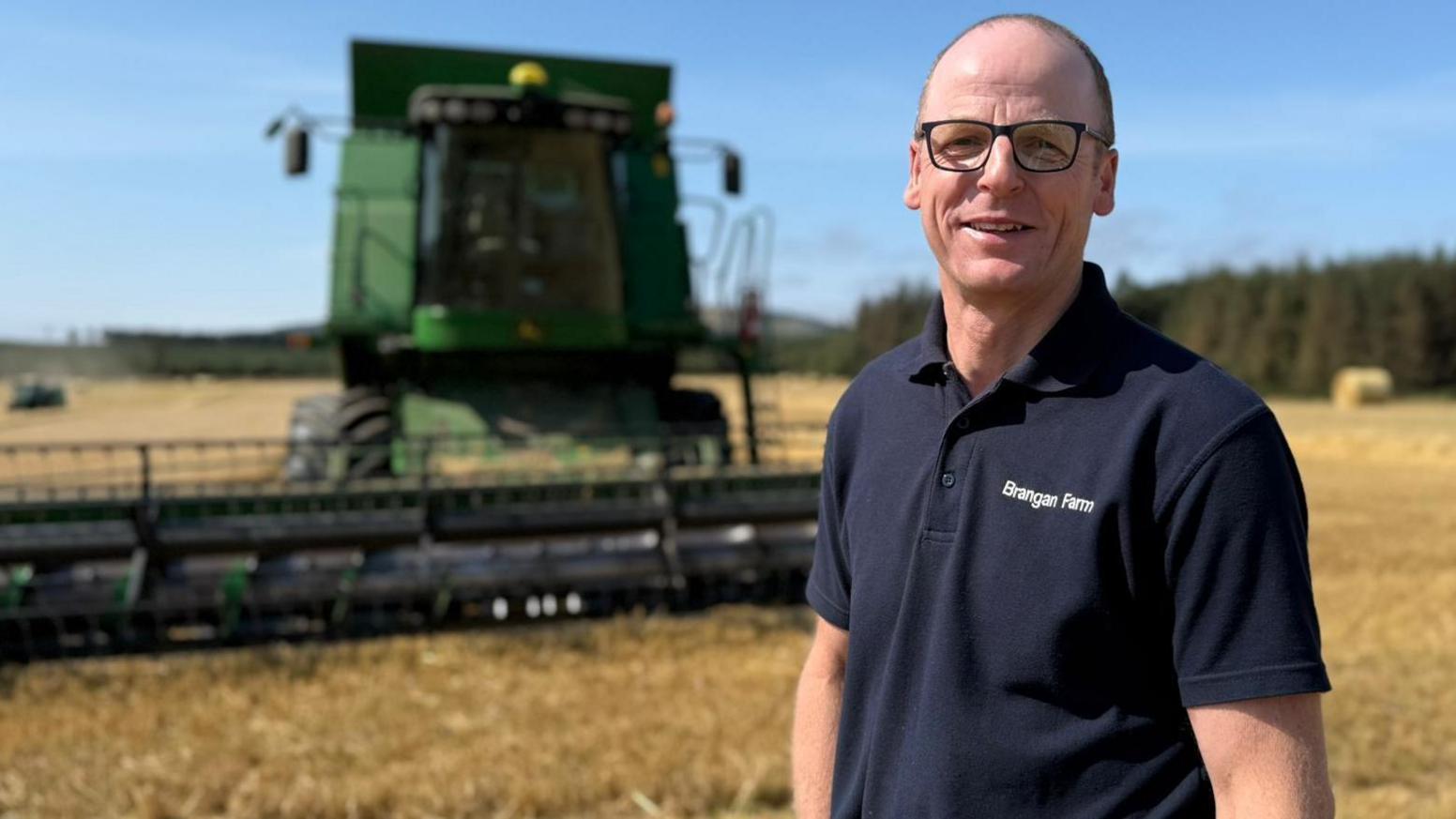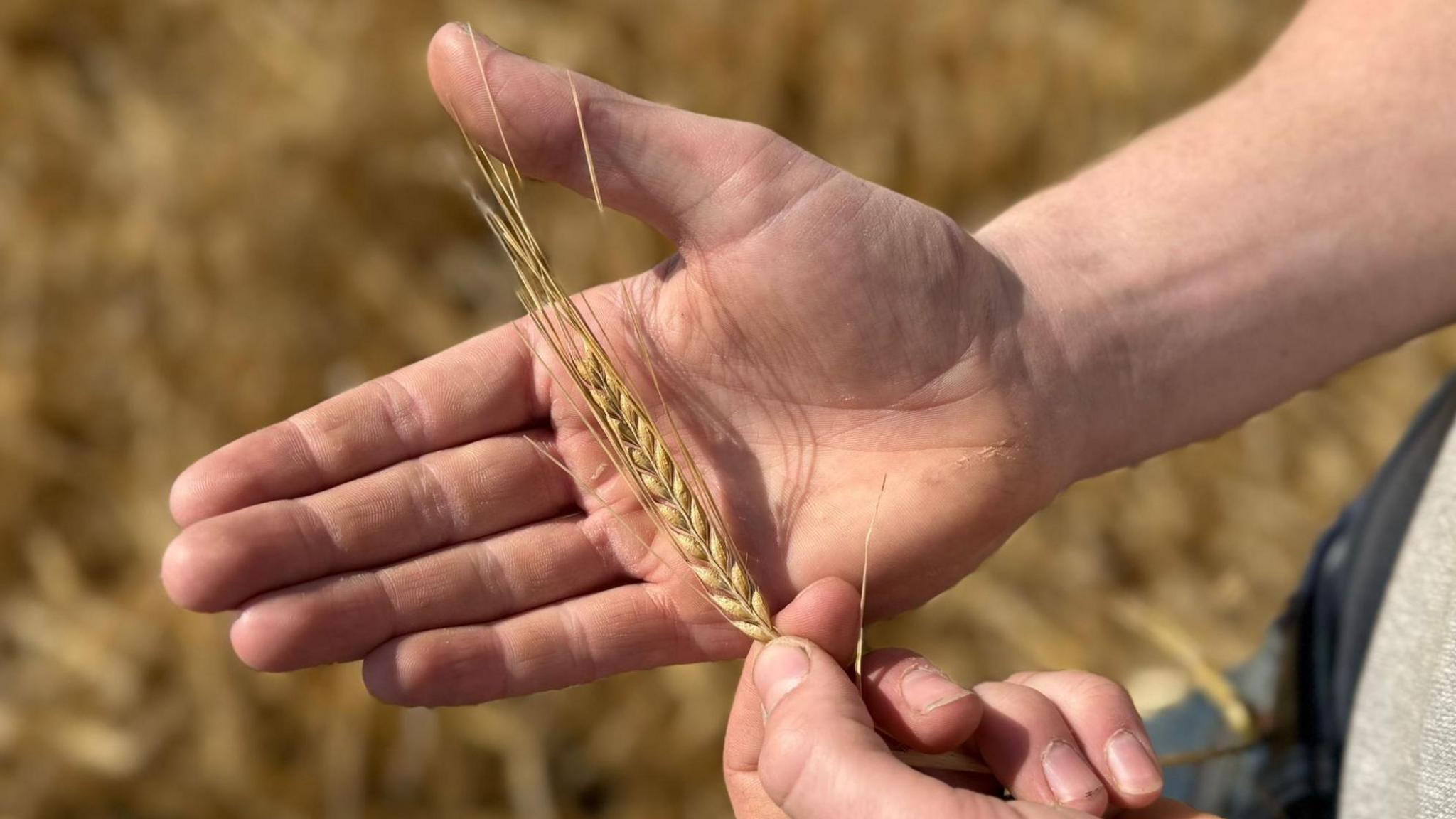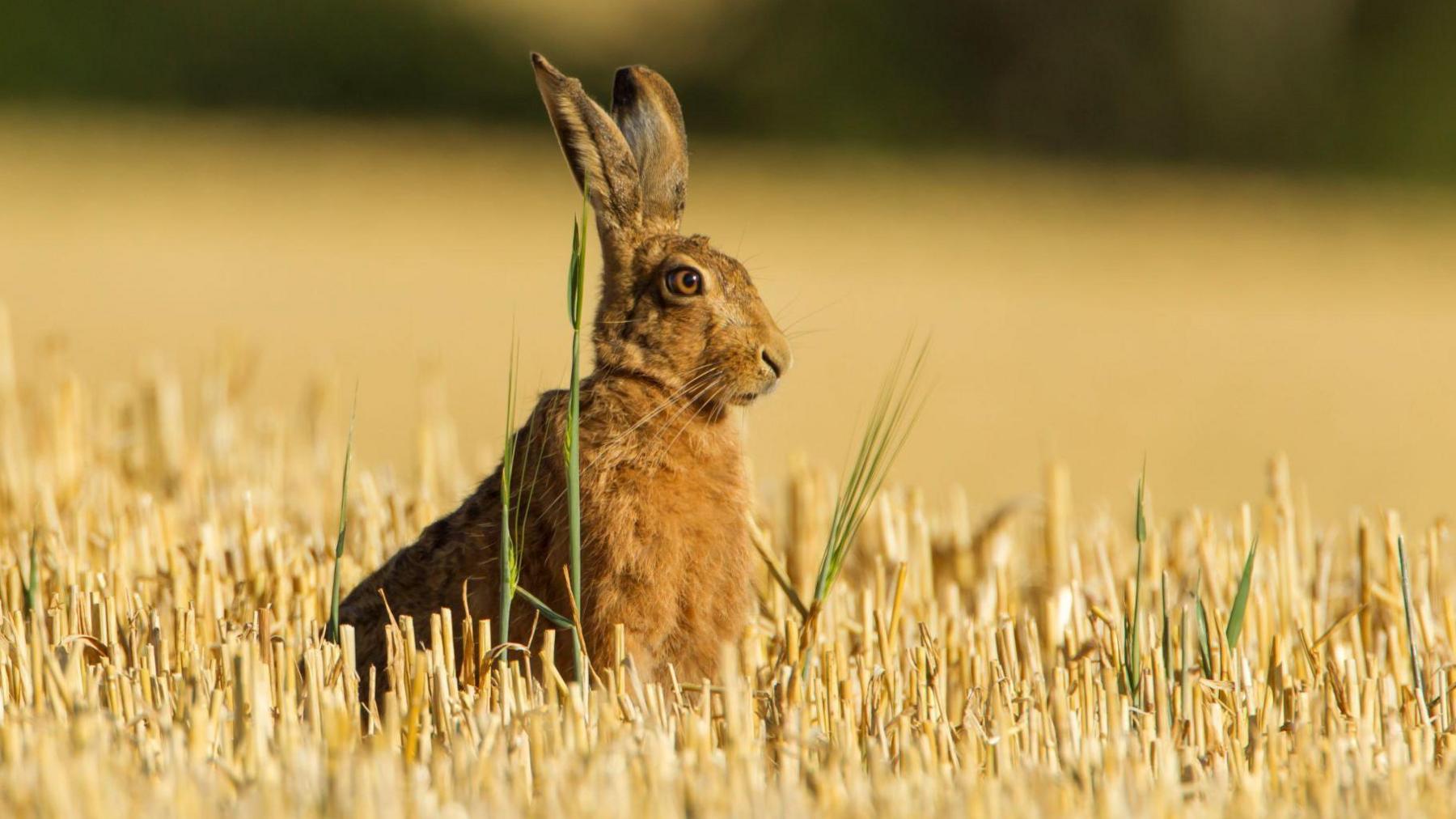Growing crops 'more unpredictable and difficult'

Aberdeenshire farmer Jack Stevenson said some farmers could lose money on their spring barley this year
- Published
Growing cereal crops in Scotland has become increasingly "unpredictable and difficult", farming body NFU Scotland (NFUS) has said.
It said "unusual weather" had resulted in this year's spring barley being ready to harvest earlier than usual - but it had also adversely affected the quality of the grain.
A dry spring affected the germination of barley in some places before later dry weather had a further impact, with the Scottish Environment Protection Agency (Sepa) raising concerns around water scarcity for some parts of Scotland.
Aberdeenshire farmer Jack Stevenson said some producers faced losing as much as £70 per tonne this year.
NFU Scotland said: "This year's spring barley harvest is coming in around two weeks earlier than usual – something we've not seen before."
Expect smaller broccoli if heatwave continues, farmers warn
- Published18 August
'It's the driest harvest of my lifetime in farming'
- Published13 August
Hot weather creates harvest challenge for farmers
- Published7 August
Barley sown in spring is often sold for making whisky, while winter-sown barley is traditionally used for animal feed and sometimes brewing beer.
An NFUS spokesperson said: "The unusual weather we've had this year has not only caused the early harvest, it has also affected the quality of the grain, particularly in malting barley – a major Scottish crop.
"If the grain doesn't meet maltsters' specifications it could be rejected, causing a serious loss of income for some businesses."
They added: "This unusual quality situation has come at a bad time, with distilleries rapidly scaling back whisky production, and a high global grain supply depressing prices around the world."
NFUS described Scottish farmers as being on the "front line" of climate change.
It said: "Changing weather patterns have made growing crops more unpredictable and difficult.
"With prices low, costs high, and weather patterns increasingly erratic, some farmers are now considering whether they should grow malting barley next year."

Farmers said warm weather had prevented the seeds from filling out properly
Mr Stevenson said the little rain seen this year had encouraged some growth, but July's heatwave had ripened crops before the barley had filled out properly.
He said this had affected quality and there was a risk most barley could end up as animal feed rather than for malting, which is more profitable.
Mr Stevenson, whose crop has met the threshold required by the whisky industry, said other producers might not be so fortunate.
He told BBC Scotland News there could be loses of about £70 per tonne in a market that was already "very depressed" due to lack of demand.
"The price was not good and now to lose even more, it's going to be crippling for any farmer that can't find a home for that grain,'' he added.
Bumper crop in Orkney
The situation has not been the same across the whole of Scotland, and producers in Orkney have reported bumper yields.
Marty Hay, of Birsay-based agricultural contractors J & S Hay, said there had been enough moisture in the soil in spring to get crops growing before conditions turned drier.
He said wet weather in June had threatened to ruin the harvest. The Met Office said Orkney provisionally recorded its wettest June on record, external.
Mr Hay told BBC Radio Orkney: "We had our best spring I can remember, but June was just about too wet.
"We thought our luck had run out."
Mr Hay said the harvest was two to three weeks early, and this had allowed farmers to cut the crop before any risk of a further change in the weather.
But he added that it had meant farm work been busier than usual as some farmers were trying to cut silage at the same time.
"It's kind of like all seasons on the go just now," he said.
Iain Clunie, programme director at the Scotland Food & Drink Partnership's Net Zero Commitment, said a wet 2024 followed by high temperatures this year had negative impacts on Scotland's crops.
He said: "We depend on our farmers to grow the food we eat and they, in turn, depend on the weather and climate to sustain their crops.
"Farmers are the bellwether of the climate change's likely impacts, and this year's crop impacts demonstrate the need to act.
"We all have a role to play to tackle climate change and to protect our shared environment that sustains us."
Related topics
- Published14 August
